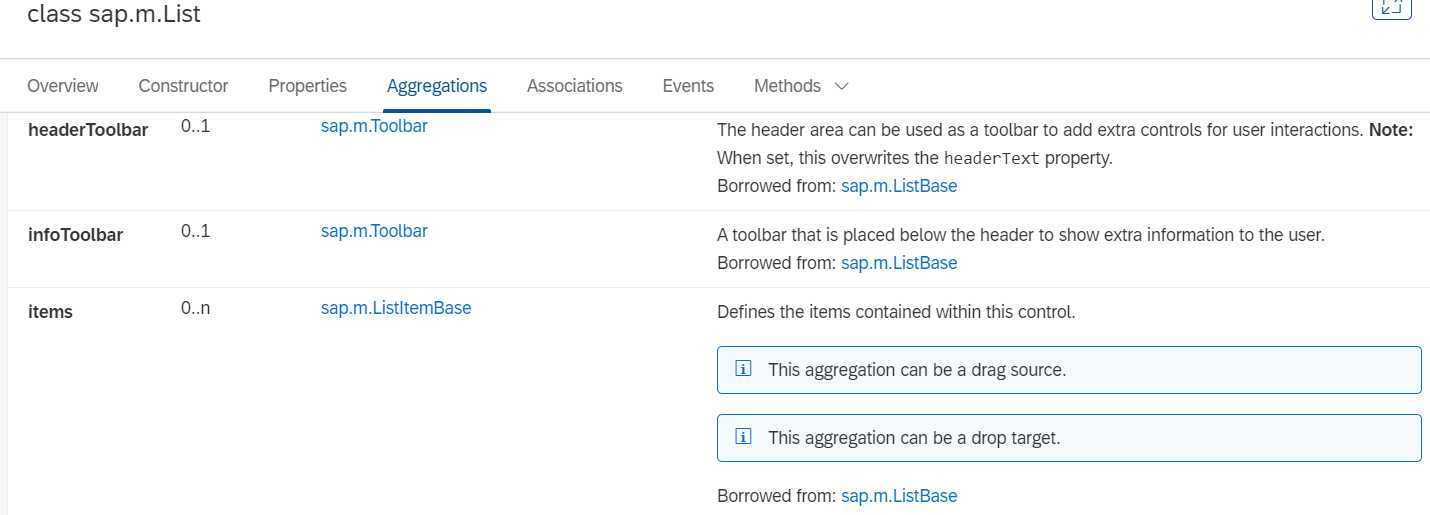sapui5 walkthrough 11-15
Posted suoluo119
tags:
篇首语:本文由小常识网(cha138.com)小编为大家整理,主要介绍了sapui5 walkthrough 11-15相关的知识,希望对你有一定的参考价值。
11 Step 11: Pages and Panels
修改App.view.xml
<mvc:View controllerName="sap.ui.demo.walkthrough.controller.App" xmlns="sap.m" xmlns:mvc="sap.ui.core.mvc" displayBlock="true"> <App> <pages> <Page title="i18n>homePageTitle"> <content> <Panel headerText="i18n>helloPanelTitle"> <content> <Button text="i18n>showHelloButtonText" press=".onShowHello"/> <Input value="/recipient/name" description="Hello /recipient/name" valueLiveUpdate="true" width="60%"/> </content> </Panel> </content> </Page> </pages> </App> </mvc:View>
这里使用了新的控件sap.m.Page。
Page控件提供一个0到n的聚合,这个聚合是content。

Page也被放在sap.m.App的聚合pages中,并且sap.m.App还提供了两个重要的功能。

1,它将一些属性写入index.html的头部,这些属性对于在移动设备上正确显示是必要的。
2,它提供了使用动画在页面之间导航的功能。
添加了displayBlock属性,为了使视图的全屏高度正常工作。
在Panel中也可以省略content,因为Panel控件将其声明为默认值,但是为了便于阅读,都会显示声明聚合内容。
XMLView控件书写的顺序
在XMLView中,有大写字母开头的控件,也有小写字母开头的非控件,比如有<List>,也有<items>。
<mvc:View controllerName="sap.m.sample.ObjectListItem.List" xmlns:mvc="sap.ui.core.mvc" xmlns="sap.m"> <List items="/ProductCollection" headerText="Products"> <items> <ObjectListItem title="Name" type="Active" press="onListItemPress" number=" parts:[path:‘Price‘,path:‘CurrencyCode‘], type: ‘sap.ui.model.type.Currency‘, formatOptions: showMeasure: false " numberUnit="CurrencyCode"> <firstStatus> <ObjectStatus text="Status" state=" path: ‘Status‘, formatter: ‘sap.m.sample.ObjectListItem.Formatter.status‘ " /> </firstStatus> <attributes> <ObjectAttribute text="WeightMeasure WeightUnit" /> <ObjectAttribute text="Width x Depth x Height DimUnit" /> </attributes> </ObjectListItem> </items> </List> </mvc:View>
大写字母开头的都是Control,小写字母开头的都是Aggregations。
Control里面可以放入很多Object,Aggregations就是为了将这些Object集合在一起。

打开API,就可以看到LIst的Aggregations。在这里可以看到所有的Aggregations都是小写字母开头的,而且可以看到<items>。

在上面代码的例子中,可以看到<items>中的对象是 ObjectListItem。点击上图的items的type sap.m.ListItemBase。可以看到ListItemBase中有子类ObjectListItem。

所以顺序就以这种方式来书写:
Control Aggregations Control Aggregations...
在上面的例子中<items>不写也不会报错,因为控件将其声明为默认值,但是为了便于阅读,都要加上Control对应的Aggregations。
以上是关于sapui5 walkthrough 11-15的主要内容,如果未能解决你的问题,请参考以下文章